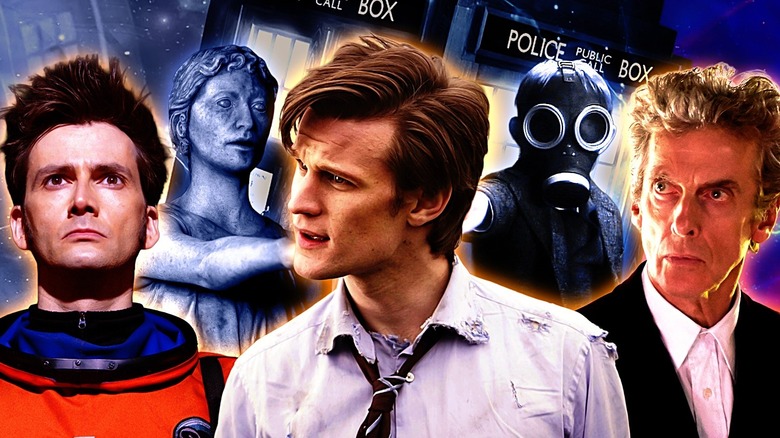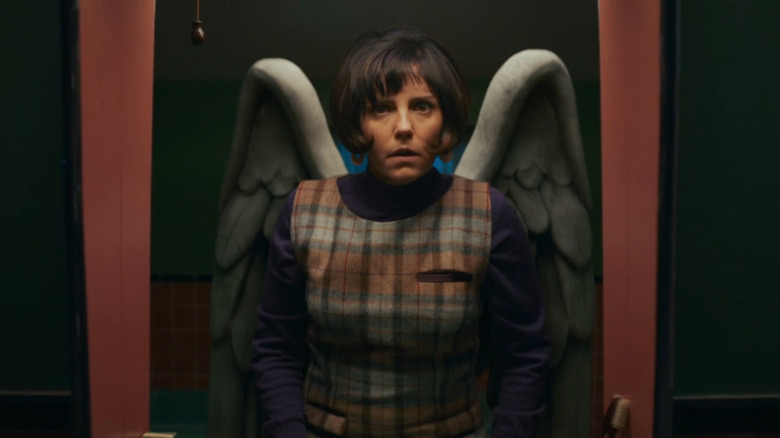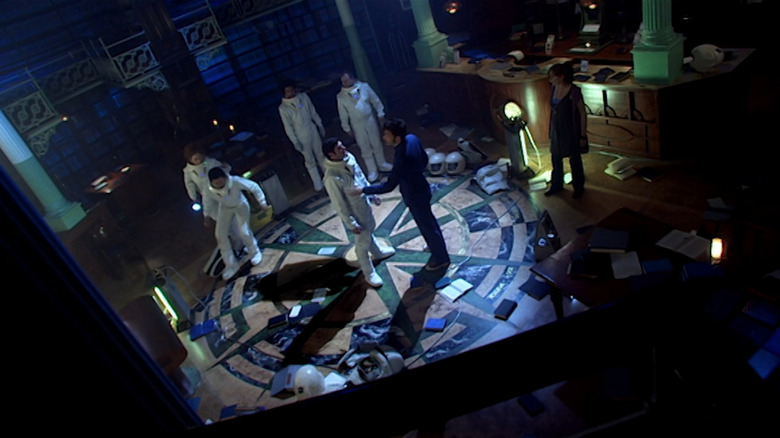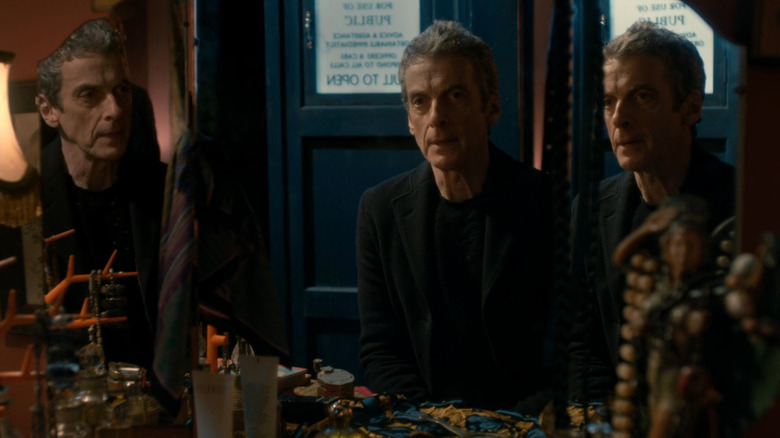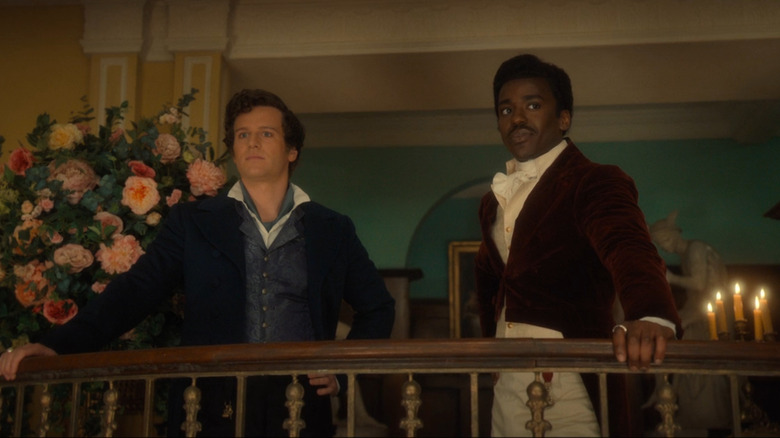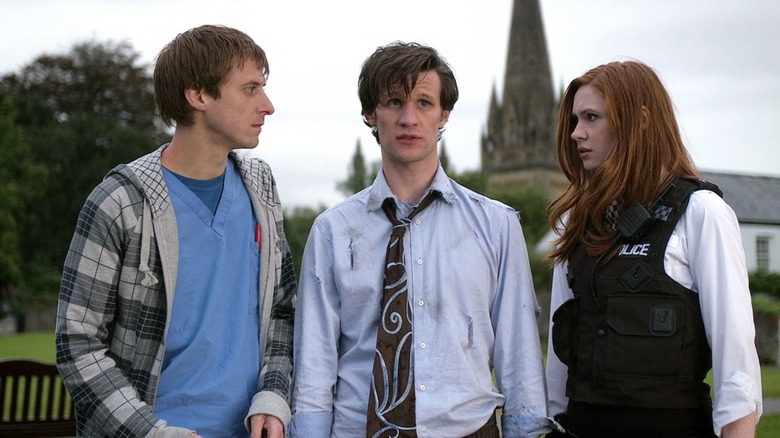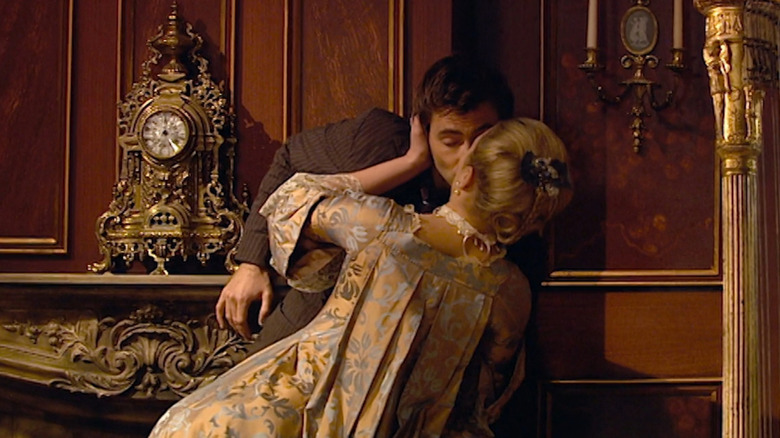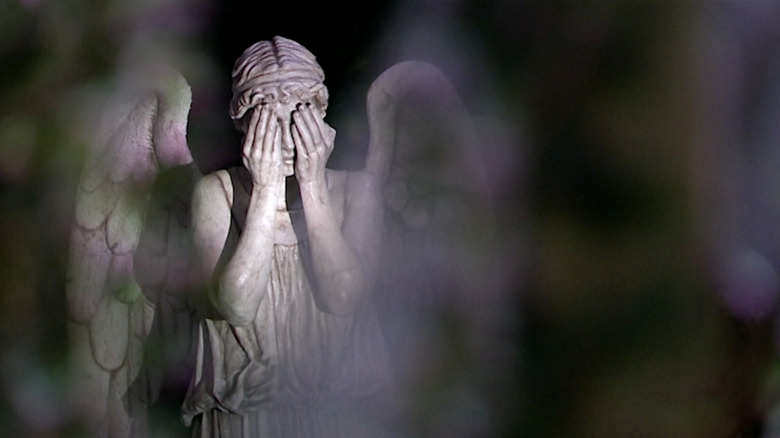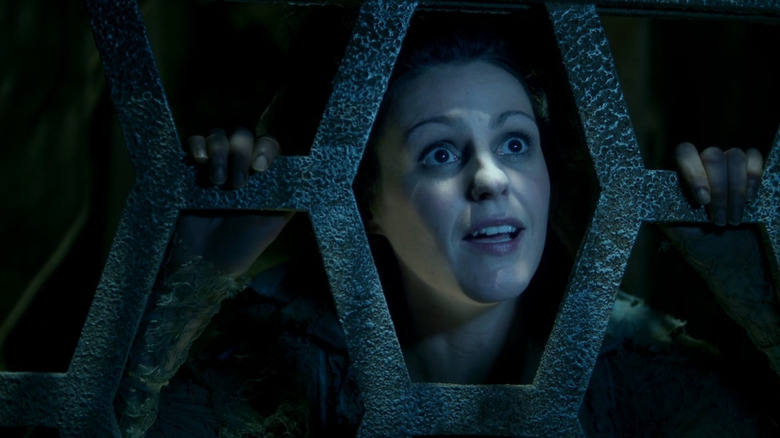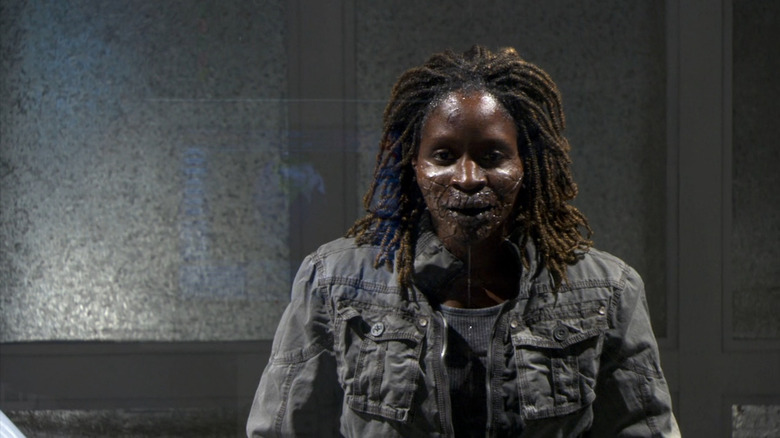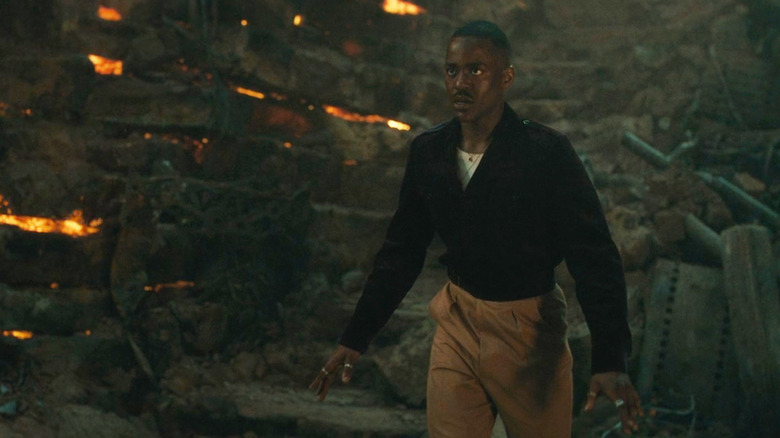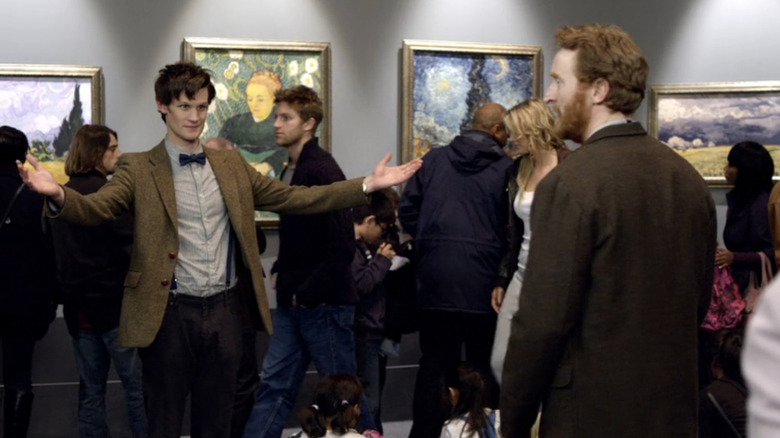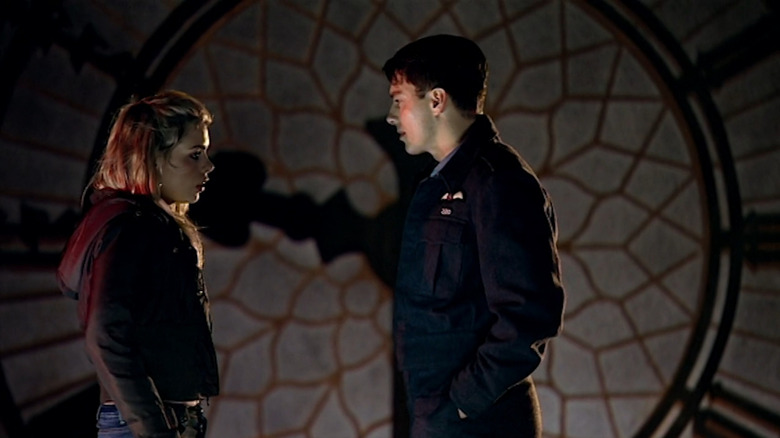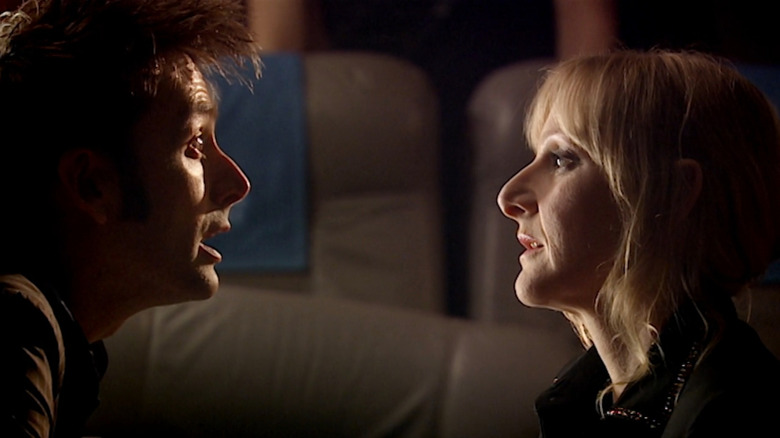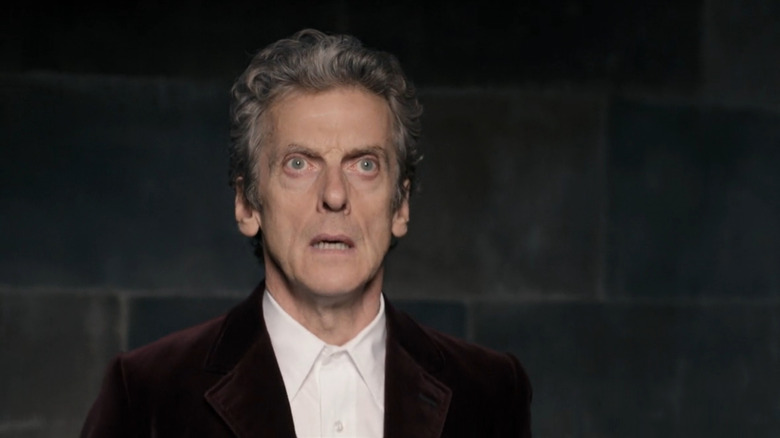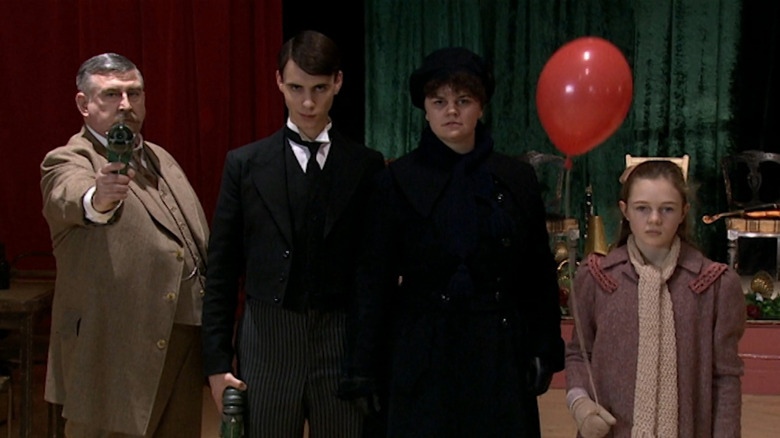15 Best Doctor Who Episodes Ever, Ranked
"Doctor Who" isn't just a television show: It's a cultural institution, one with so many moving pieces it needs its own beginner's guide. The long-running science-fiction program has been on the air (well, off and on) since the early 1960s, and although it's gone through various permutations since then, the central premise has always been the same: The Doctor, played by different actors as a result of his species' ability to regenerate, travels throughout time and space in the TARDIS, often with companions who help him through various adventures and battles with all sorts of foes.
There are excellent "Doctor Who" episodes dating all the way back to the beginning of the show, but for the purposes of this article, we're just going to focus on the rebooted series as it began in 2005. The early episodes can be difficult for fans to track down, and unfortunately, many are lost, due to the BBC's practice of erasing taped shows after they had already aired. From Christopher Eccleston to the newest Doctor, Ncuti Gatwa, these are the best episodes that "Doctor Who" has created.
15. Village of the Angels
Jodie Whittaker's tenure as the Doctor on "Doctor Who" hasn't been the most fondly remembered, largely due to the writing letting her down. As a rule, we tend to get nervous when an entire series is dedicated to one storyline — remember the ill-conceived, 14-episode-long serial "Trial of a Time Lord" from the Colin Baker era? That said, there are some bright spots during Whittaker's time on the show, and "Village of the Angels" — the fourth in a six-episode series called "Flux" — is one of them.
As the episode begins, a Weeping Angel in the TARDIS has left the Doctor and her companions stranded in a small English village in 1967. This town, we learn, has had a mass disappearance of its residents and was pulled out of the time continuum by the Angels (did we know they could do that?) to facilitate their hunt of a Rogue Angel. Packed full of excellent performances, interesting historical commentary on psychic research in the 1960s, and the chilling presence of the Angels, "Village of the Angels" is one of the best outings of the Whittaker era.
14. Silence of the Library/Forest of the Dead
For fans of River Song, the two-parter "Silence in the Library/Forest of the Dead" is memorable for her introduction as someone who intimately knows the Doctor, although at this point, he's never met her. But even if you're neutral on the whole River Song/Doctor relationship, these two episodes have more than enough going on to make them stand out as some of the best of Tennant's run on the show.
The Doctor and his companion Donna (Catherine Tate) receive a summons for help in a mysterious library, where they run into a crew of archeologists led by River Song. Unfortunately, the library is also populated by the Vashta Nerada, an alien species that manifests in physical form as shadows and are capable of literally stripping the flesh off a body. The legitimately terrifying Vashta Nerada are among the creepiest "Doctor Who" aliens, as they eat up the team one-by-one, leaving little more than a skeleton in a spacesuit and the rapidly deteriorating last thoughts of their victims.
13. Listen
When Peter Capaldi joined "Doctor Who" as the Twelfth Doctor, he was coming on the heels of two massively popular Doctors who took the show from niche science-fiction to a global hit. So its a testament to his skill as an actor and how quickly he was able to settle into the show that he was able to headline one of the best episodes of "Doctor Who" so early into his tenure.
"Listen" was the fourth episode of his first season, and in comparison with many of the other most memorable episodes, it's fairly small-scale and self-contained. There are no terrifying monsters to defeat, no apocalypses to avert — just the familiar childhood fear of something reaching out and grabbing you from under your bed. But it's precisely this reason that "Listen" is so good. In an episode as bare bones as this, there's nowhere for an actor playing the Doctor to hide, no set pieces to avert our gaze. It's impeccably written, with new revelations about the still-mysterious-after-all-these-years Doctor, and surprisingly understated performances from all involved.
12. Rogue
Sorry, but we're simple people, and if you put Jonathan Groff in an episode of "Doctor Who," of course we're going to love it. It helps that "Rogue" is one of the most fun historicals we've had in ages, sending Gatwa's Doctor and his companion Ruby (Millie Gibson) to a Regency-era ballroom on the hunt for a mysterious bounty hunter named Rogue. We'd call it a less horny version of "Bridgerton," but then again, the chemistry between the Doctor and Rogue is pretty sizzling.
Although "Rogue" is pretty darn close to what OG Who fans would refer to as a "pure historical" — an episode where the science fiction elements of the show are kept to a minimum — don't worry, it still has shape-shifting bird aliens for those who can't imagine "Doctor Who" without at least something a little weird and otherworldly. Some critics questioned the staying power of "Rogue," considering how much it relies on familiarity with "Bridgerton," but we think the production design and the strength of Gatwa and Groff's performances are enough to cement its legacy among audiences.
11. The Eleventh Hour
When Matt Smith was first announced as the 11th Doctor coming off the heels of the mega-popular David Tennant, there were rumbles of discontent from the very beginning. Was he too young for the role? Too inexperienced? A cynical effort to make the Doctor cool? There was a lot of pressure on Smith to deliver, so the fact that "The Eleventh Hour" is one of the strongest Doctor introductions in the show's history says something about how quickly he developed his own personal take on the role.
To be fair, the threat of the piece isn't really one to write home about — an intergalactic prisoner has been hiding out on Earth, and the Atraxi (alien cops) turn up prepared to destroy the planet if it doesn't give itself up. But that's just the backdrop of "The Eleventh Hour," which is far more interested in character building. In just one episode, we have a full handle on the new Doctor, who has a menacing quality that belies his youth and easygoing smile, and his new companion, Amy Pond (Karen Gillan).
10. The Girl in the Fireplace
For the majority of "Doctor Who's" time on the air — especially in the pre-reboot years — the Doctor was pretty sexless, and you had to look closely and squint to see any kind of romantic hijinks going on. But then Tennant's 10th Doctor came on the scene, and ... well, he's kissing everyone, including the legendary Madame du Pompadour (Sophia Miles), mistress to King Louis XV of France.
Madame du Pompadour is at the heart of "The Girl in the Fireplace," as she's spent her entire life being tailed by a troupe of creepy clockwork robots who believe that they can use her brain to fix their spaceship. In a way, the Doctor has been following her as well, first encountering her as a little girl before saving her from the first clockwork robot, then several more times throughout her life. The production design of "The Girl in the Fireplace" is top-notch, as is the tremendous chemistry tinged with melancholy between the Doctor and Madame du Pompadour.
9. Blink
Let's get one thing out of the way: The only reason we're not ranking "Blink" higher on the list is because it's a Doctor-lite episode, where Ten only appears for about two minutes, and it didn't feel right to put it above episodes where we get to see the Doctor in all his glory. But make no mistake, "Blink" is a banger of an episode. Not only do we get the always delightful Carey Mulligan as our lead for the week, but "Blink" also introduces one of the show's most famous villains with the Weeping Angels.
The Angels look like statues, but they're only stationary when they're being looked at. If you blink, even for a just a split second, they can attack you, tearing you from your life and haphazardly dropping you off in some other place and time, never to return. Although you could argue that the Angels became a little over-used during showrunner Steven Moffat's tenure, they were never scarier than they are in "Blink."
8. The Doctor's Wife
Yes, the Doctor loves River Song, but the one lady he really can't live without is his TARDIS, the famous blue police box that he uses to travel across time and space. So when we meet Idris (Suranne Jones) on a sentient asteroid called the House, and she turns out to be the human manifestation of the Doctor's beloved TARDIS ... well, as Amy asks him, "Did you wish really hard?" It turns out that this asteroid has been using Gallifreyan distress signals to lure Time Lords to their doom, something the Doctor understandably doesn't take kindly to.
But really, the highlight of the episode is that the Doctor and his TARDIS — the best of friends since the very beginning of the show — finally get the opportunity to communicate with one another. Although we've always thought of the TARDIS as a machine, "The Doctor's Wife" expertly develops the deep bond and affection it and the Doctor have for each other. It would be silly if the TARDIS could talk to the Doctor all the time, like some wise-cracking '80s robot, but just for this one episode, it's surprisingly powerful.
7. The Waters of Mars
As part of David Tennant's four-episode farewell tour of specials, "The Waters of Mars" sees the Doctor visit the first human colony on Mars — a colony that is doomed, and the Doctor is powerless to save since its destruction has massive ramifications for the development of humanity. At this point in his tenure as a time traveler, the Doctor really shouldn't need lessons in the dangers of attempting to change fixed points in history. Alas, here we are.
The threat in "The Waters of Mars" is a sentient virus called The Flood, which turns its victims into drooling, unpleasantly moist zombies with disturbingly cracked faces that even the most heavy-duty Chapstick couldn't fix. The spread of the infection throughout the colony occurs frighteningly fast and threatens its very existence — unless, of course, the Doctor makes a decision that goes against The Rules. "The Waters of Mars" blends the terrifying with the philosophical, pushing up against the limitations of time travel.
6. Boom
Look, we love the Daleks and the Cyberman and massive existential threats as much as the next person, but sometimes we just want a good old-fashioned bottle episode. And that's what we get with "Boom," which, despite its straightforward storyline and small-scale production, is so tense that we kind of feel like we're going to throw up the entire time. Basically, here's the gist: The Doctor lands on a planet in the midst of a massive war. While investigating the cries of a soldier killed by a sentient ambulance, he inadvertently steps on a landmine.
But this is no ordinary landmine. It fuses with the DNA of its victim, using their life force itself as an explosive. And the Doctor ... well, he's quite one hell of a life force. What "Boom" lacks in majestic set pieces it makes up for in the laser-sharp escalation of tension and Gatwa proving his worth as a Doctor pulsing with energy, even when he's forced not to move a single muscle.
5. Vincent and the Doctor
A lot of people tune into "Doctor Who" for madcap adventures, but if you want to just sob, you can't do better than "Vincent and the Doctor." Tony Curran puts in a deeply impactful performance as Vincent Van Gogh, who receives a visit from the Doctor and Amy when they spot a monster hiding in one of his most famous paintings. Van Gogh suffered from debilitating depression, something that impacted both his work and his personal life. Fittingly, the monster of the week is a Krafayis that only Van Gogh can see, and it turns out that it's just misunderstood, not unlike the painter himself.
The triumphant conclusion of the episode, when the Doctor brings Van Gogh to a modern-day exhibit of his work, is a master stroke. Under-appreciated as an artist during his lifetime, can you even imagine how much it would have meant to him to see his work beloved a century and a half later? But this joyful moment from the master of maudlin sentimentality, "Love Actually" director Richard Curtis, is undercut with melancholy as we realize that it didn't save Van Gogh from his fate — although it did make his life brighter, even if just for a short time.
4. The Empty Child/The Doctor Dances
Christopher Eccleston's time on "Doctor Who" was short, and he's oft acknowledged that it wasn't his favorite project, but the show owes him a debt of gratitude for giving the reboot a unique identity right off the bat. His very best outing came in the World War II-set "The Empty Child/The Doctor Dances," which sees him and Rose in London during the Blitz. That would be dangerous enough, but they also have to contend with a mysterious child wearing a gas mask who keeps asking, "Are you my mummy?" ("Kids are creepy" is apparently the official stance of "Doctor Who" in this episode.) And what's more, it turns out that people start to have gas masks sprouting out of their faces, which is no fun at all.
"The Empty Child/The Doctor Dances" has so much going for it: There's a pervasive sense of poignancy about everything from life during a war to motherhood, wildly unsettling body horror, and if that wasn't enough, it also happens to be the debut of Captain Jack Harkness (John Barrownman), a fan-favorite character who ended up with his own spinoff, "Torchwood."
3. Midnight
You don't ever actually see the threat in "Midnight," (it was, after all, made on the cheap) so it's probably not the episode that scares viewers the most. But it seems like one of the experiences that scared the Doctor the most, and that says something. He's taking a nice little train ride on a diamond planet (as one does), when one of his fellow passengers begins acting peculiarly. Sky (Lesley Sharp) is compelled to repeat everything that everyone else says, but before long, she's speaking at the same time as them. And then she speaks before them, and they're powerless to do anything but repeat her.
If you're the Doctor, this is uniquely terrifying. He's a man who runs around the universe being clever, and all he has are his words. To see him stripped of them, forced to echo another, is wildly unnerving. There's not really a villain here, but "Midnight" highlights how tremendously terrifying humans infected with mob mentality can be. When faced with an unknown threat, it takes almost no time at all for otherwise friendly, intelligent people to give way to paranoia and violence. A lesson for our times, indeed.
2. Heaven Sent
Honestly, these last two picks could have been a coin flip. Both represent the absolute pinnacle of "Doctor Who," but our first place finisher has had a little bit more time to build and maintain a reputation, so we gave it the win. That, however, takes nothing away from "Heaven Sent," which is top-tier.
"Heaven Sent" is a master class from Peter Capaldi, who accomplishes so much from an emotional perspective almost entirely on his own. As the Doctor is trapped inside a prison, a castle he's been stranded in for an eternity. As he realizes exactly how long he's been there, and how many versions of himself have tried and failed to escape, the Doctor must draw on inner reserves of strength to claw his way out of the prison built for one. This is Capaldi's baby from start to finish, and without his keen and penetrating performance, who knows — the Doctor might still be trapped inside. "Heaven Sent" is widely considered by friends to represent the very best that "Doctor Who" has to offer, and it's hard to disagree.
1. Human Nature/Family of Blood
The "Human Nature/Family of Blood" two-parter is note-perfect "Doctor Who." Martha, a companion who never got the respect she deserved, is given the spotlight in this episode, and Freema Agyeman runs with it. When the episode begins, we're a bit wrong-footed. Martha is working as a maid at a pre-World War I boarding school, while Ten seems fully entrenched in his disguise as John Smith, a prim teacher with a crush on the school nurse — and apparently has no idea that he's actually the Doctor.
As we find out, the Doctor has hidden his Timelord consciousness in a pocket watch to avoid detection by the Family of Blood. But despite his efforts, they track him down, and for Martha to save them all, she has to give him back his memories. It's hard not to feel for John Smith, horrified at the revelation of who he really is, or to avoid being thoroughly creeped out by the Family of Blood in their human skins.
As the villainous Son of Mine, Harry Lloyd chews on the scenery with glee, but also gets to deliver one of the show's best monologues about the horrors of war — especially poignant since John Smith's young students are mere months away from the outbreak of World War I. "Do you think they will thank the man who taught them it was glorious," he asks Smith with a malevolent gleam in his eye. And the Doctor's punishment of them is just as cruel. Although there are plenty of contenders for the best of "Doctor Who," this two-parter steals the top prize.
